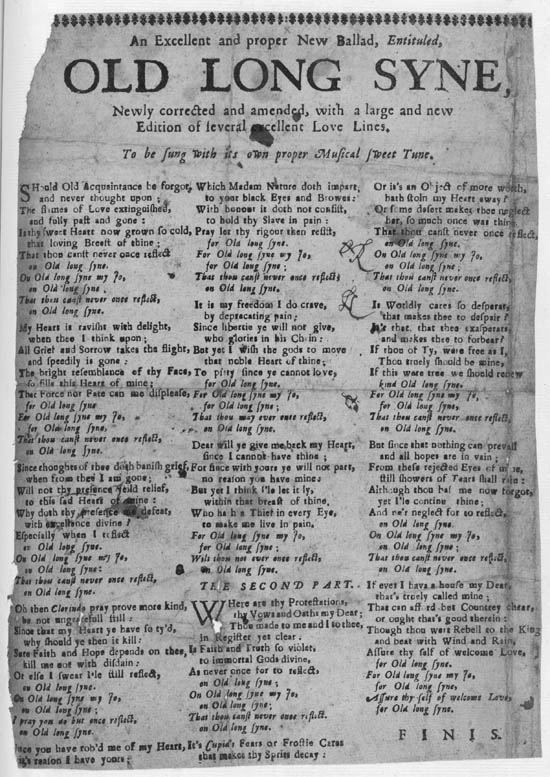The page of Auld Lang Syne, English biography
Biography
The song's Scots title may be translated into English literally as "old long since", or more idiomatically, "long long ago", "days gone by" or "old times". Consequently "For auld lang syne", as it appears in the first line of the chorus, might be loosely translated as "for (the sake of) old times".
The phrase "Auld Lang Syne" is also used in similar poems by Robert Ayton (1570–1638), Allan Ramsay (1686–1757), and James Watson (1711) as well as older folk songs predating Burns. Matthew Fitt uses the phrase "In the days of auld lang syne" as the equivalent of "Once upon a time..." in his retelling of fairy tales in the Scots language.
John Watson collected and printed in Edinburgh a miscellaneous collection of Scottish Songs, in three parts (1706, 1709, 1710).
http://en.wikipedia.org/wiki/Auld_Lang_Syne
(Editor of this page: P. T.)



